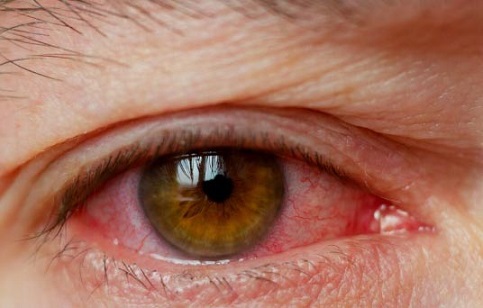Nikhil Prasad Fact checked by:Thailand Medical News Team Aug 10, 2024 7 months, 3 weeks, 3 days, 11 hours, 59 minutes ago
Glaucoma News: In a recent study, researchers from The Jackson Laboratory in Bar Harbor, Maine-USA, along with collaborators from the University of Maine-USA and the University of Rochester Medical Center-USA, have uncovered new insights into the role of microglia, a type of immune cell in the retina, in the progression of glaucoma. This
Glaucoma News report will delve into how the depletion of these cells can lead to increased vulnerability to the disease, particularly in cases of ocular hypertension.
 Microglia depletion and its impact on glaucoma progression
Understanding Glaucoma and Its Risk Factors
Microglia depletion and its impact on glaucoma progression
Understanding Glaucoma and Its Risk Factors
Glaucoma is one of the leading causes of irreversible blindness globally. It primarily affects the retinal ganglion cells (RGCs), which are the neurons that form the optic nerve connecting the retina to the brain. The disease is strongly associated with aging and elevated intraocular pressure (IOP), or ocular hypertension. While current treatments focus on lowering IOP, they are not always effective in preventing vision loss, as some glaucoma patients do not exhibit increased IOP, and about 10% still experience vision deterioration despite treatment.
Given the limitations of current treatments, the scientific community has been exploring alternative therapeutic targets. One area of interest has been the microglia in the retina and optic nerve. These cells are the central nervous system's resident immune cells, responsible for removing cellular debris, monitoring for injury and pathogens, and coordinating immune responses.
The Protective Role of Microglia
Microglia constantly survey their environment and react to changes such as increased IOP or injury. When these changes occur, microglia undergo specific transformations, including changes in their shape and gene expression profiles. These adaptations often precede the dysfunction and death of RGCs, which are hallmarks of glaucoma.
Previous research has shown that reducing microglial activity through treatments like minocycline or irradiation could promote RGC survival in mouse models of glaucoma. However, these methods are not specific to microglia alone and could affect other biological processes. To better understand the specific role of microglia, researchers in this study used a more targeted approach by depleting microglia using PLX5622, a colony-stimulating factor 1 receptor (CSF1R) inhibitor.
Methodology: How the Study Was Conducted
The researchers conducted their study on aged DBA/2J (D2) mice, a model that naturally develops glaucoma due to age-related increases in IOP. These mice were given PLX5622 through their diet, starting at 9.5 months of age, a time when IOP elevation had already begun, but before significant glaucomatous neurodegeneration had occurred.
The researchers then assessed the impact of microglia depletion on the progression of glaucoma by counting RGC somas and evaluating optic nerve cross-sections for glaucomatous damage. Their findings revealed that sustained administration of PL
X5622 significantly reduced the number of retinal microglia. Importantly, the study found that microglia depletion did not affect IOP levels but did lead to an increase in moderate-to-severe optic nerve damage.
Key Findings: Microglia's Beneficial Role
One of the most striking findings of the study was that while the PLX5622-treated D2-Gpnmb+ control mice did not develop optic nerve damage, the PLX5622-treated D2 mice showed a significant increase in such damage compared to mice on a standard diet. This suggests that the global reduction of microglia exacerbated glaucomatous neurodegeneration in the D2 mice, indicating that microglia play a protective role in the retina, particularly in the context of ocular hypertension.
Interestingly, the study also found that microglia depletion did not affect RGC soma survival. The loss of RGC axons and the corresponding RGC somas remained coupled, suggesting that microglia play a critical role in protecting RGCs from axonal damage rather than directly influencing their survival.
Discussion: Implications for Future Research and Treatments
This study provides valuable insights into the nuanced role of microglia in glaucoma. While previous studies suggested that microglia could be both beneficial and detrimental, this research highlights the protective nature of these cells in the context of ocular hypertension. The findings suggest that microglia help maintain retinal integrity and prevent glaucomatous neurodegeneration, particularly in aging individuals with elevated IOP.
The implications of this research extend beyond understanding glaucoma. The study raises important questions about the differences in microglial responses between diseases of the brain, like Alzheimer's disease (AD), and eye conditions like glaucoma. For instance, while microglia depletion has been shown to reduce damage in mouse models of AD, this study shows that the same approach can be damaging in glaucoma models. This suggests that the mechanisms by which microglia respond to injury or disease in the brain may differ from those in the eye.
Furthermore, the study underscores the importance of carefully considering the timing and context of microglia-targeted treatments. The researchers observed that starting PLX5622 treatment after IOP elevation led to increased optic nerve damage, suggesting that timing is crucial when designing therapeutic strategies involving microglia.
Conclusion: The Critical Role of Microglia in Glaucoma
In conclusion, this study demonstrates that microglia play a crucial protective role in the retina during the progression of glaucoma, particularly in cases of ocular hypertension. The depletion of these cells leads to increased susceptibility to glaucomatous damage, highlighting the need for further research to explore how microglia can be targeted for therapeutic interventions without causing harm.
The study findings were published in the peer-reviewed journal: Frontiers in Aging Neuroscience.
https://www.frontiersin.org/journals/aging-neuroscience/articles/10.3389/fnagi.2024.1396443/full
For the latest
Glaucoma News, keep on logging on to Thailand Medical News.
Read Also:
https://www.thailandmedical.news/news/neuroglobin-a-new-hope-for-glaucoma-treatment
https://www.thailandmedical.news/news/breaking-covid-19-news-chinese-study-discovers-that-sars-cov-2-increases-the-risk-for-developing-acute-angle-closure-glaucoma
